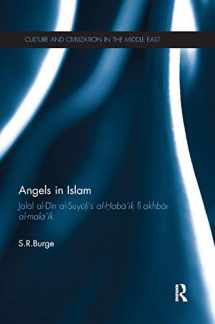
Angels in Islam: Jalal al-Din al-Suyuti's al-Haba'ik fi akhbar al-mala'ik (Culture and Civilization in the Middle East)
Book details
Summary
Description
Angels are a basic tenet of belief in Islam, appearing in various types and genres of text, from eschatology to law and theology to devotional material. This book presents the first comprehensive study of angels in Islam, through an analysis of a collection of traditions (hadīth) compiled by the 15th century polymath Jalāl al-Dīn al-Suyūtī (d. 911/1505).
With a focus on the principal angels in Islam, the author provides an analysis and critical translation of hadith included in al-Suyuti’s al-Haba’ik fi akhbar al-mala’ik (‘The Arrangement of the Traditions about Angels’) – many of which are translated into English for the first time. The book discusses the issues that the hadīth raise, exploring why angels are named in particular ways; how angels are described and portrayed in the hadīth; the ways in which angels interact with humans; and the theological controversies which feature angels. From this it is possible to place al-Suyūtī’s collection in its religious and historical milieu, building on the study of angels in Judaism and Christianity to explore aspects of comparative religious beliefs about angels as well as relating Muslim beliefs about angels to wider debates in Islamic Studies.
Broadening the study of Islamic angelology and providing a significant amount of newly translated primary source material, this book will be of great interest to scholars of Islam, divinity, and comparative religion.


We would LOVE it if you could help us and other readers by reviewing the book
Book review



